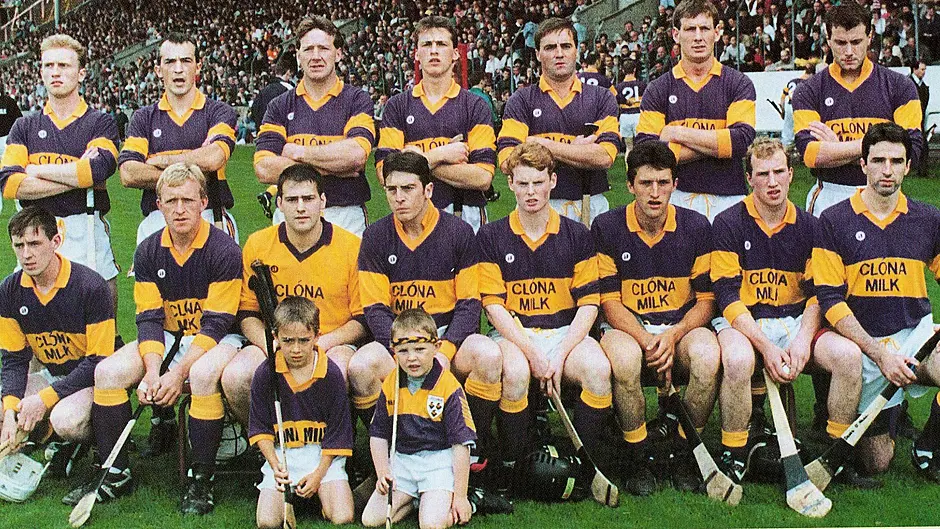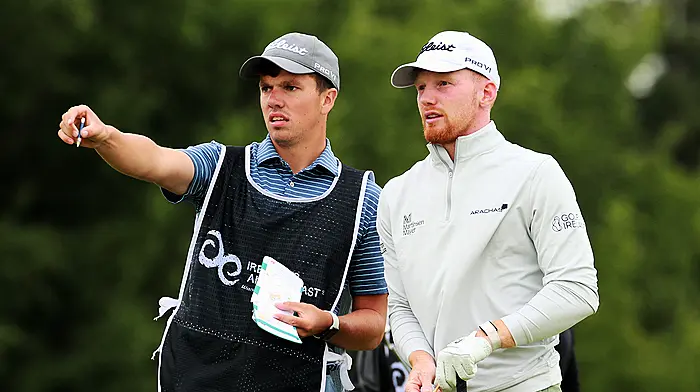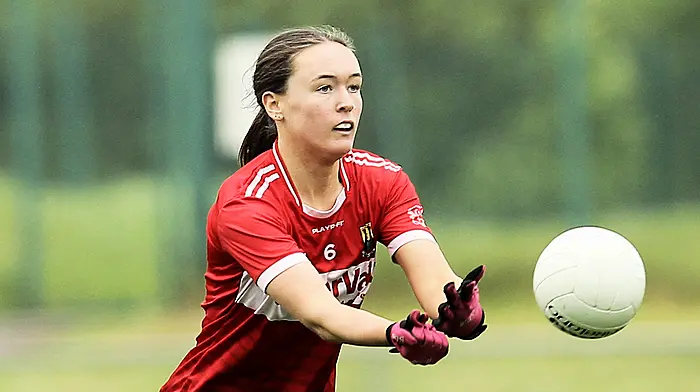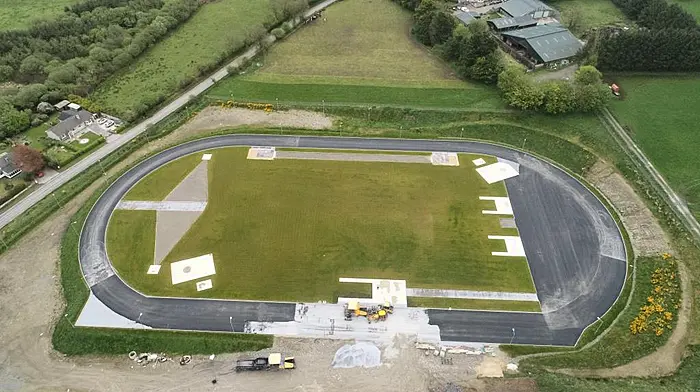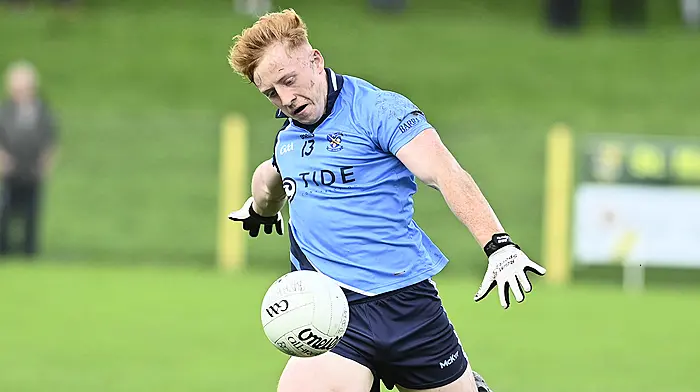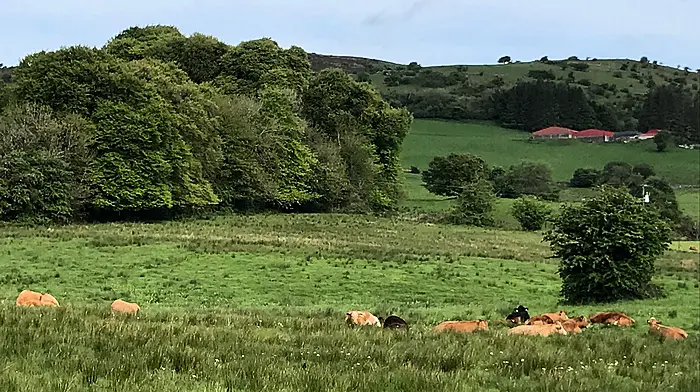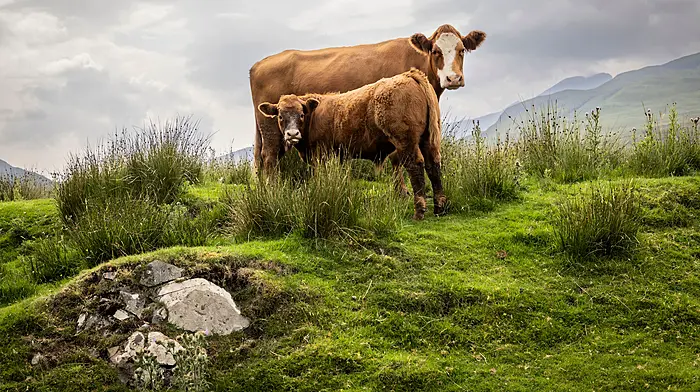Carbery GAA Chairman TOM LYONS insists the division’s senior hurling team has a future
THIS year, for the second season in a row and because of the Covid pandemic, the Carbery hurling team will not take part in the county senior hurling championship
The bearers of doom and gloom as regards Carbery hurlers would hold that this is surely the beginning of the end, if not the actual end, of the divisional hurling team.
However, while there may be serious doubts as to the future of the team, those with a genuine interest of Carbery hurling at heart are determined not to let the ship sink without a determined effort to make it sailable again.
They have history on their side in their efforts.
The Carbery divisional hurling team first saw the light of day in 1933 and their record since has been a turbulent one indeed. The odd high was more than tempered by many lows but the struggle to put a team on the field kept on going. Yes, there were years when the effort failed – not too many – and there were many hammerings by the top hurling teams along the way. Little changed over the years and during the past decade there has been serious debate as to the advisability of fielding a Carbery hurling team.
The search for willing mentors to run the team is an annual thankless task, while persuading the top clubs and players to become involved has often fallen on deaf ears. Trying to get a panel together to play a challenge game of any kind is exactly that, a challenge, while training sessions are rare and far between because of lack of numbers. The supporters at the games could almost be counted on the fingers of one hand at times, while many an hour is spent before games making phone calls to try to gather 15 players.
So, you’ll ask, why bother making the effort of fielding a Carbery team?
Because there are always players wanting and willing to wear the Carbery hurling jersey, always some selectors to take them out and always the possibility that a game might be won. A successful season is usually one in which a single game might be won. Those of us lucky enough to see it will never forget the early years of the 1990s when a talented bunch of players and a totally committed management team took the team to a glorious county title win in 1994, after heartbreakingly losing a replayed final the previous year.
Carbery lived on the glory of those years for a whole decade but inevitably the old bad habits returned and in recent years, respectable defeats have been the target each season.
Does Carbery need a divisional senior team and does Cork hurling need a Carbery team? The answer to both questions must be a firm yes and is the reason for continuing.
Carbery needs a senior hurling team as a stage for the best junior and intermediate players in the division to show their ability to county selectors and to the public in general. Top-class Cork senior hurlers who played with West Cork teams are rare indeed and we all remember the great deeds of Tim Crowley and Mark Foley because what is rare is wonderful.
A player like Luke Meade who carries the West Cork flag at present is a role model for all young hurlers in the division, but how many potential Cork players from Carbery have been lost because they had no chance to improve their skills at senior level? We will mention just one present player, David Lowney of Clonakilty, an outstanding Cork underage player who spent the last five years with UCC and is on the verge of the Cork senior team.
Lowney has now left the college and has to rely on the Clon junior team for his hurling. What chance has he of becoming a Cork senior hurler in the near future? At least, if he had a successful Carbery team to provide him with senior hurling, he would stand a chance. He is but one of many here in Carbery but he faces the risk of getting lost in the present system like so many before him from the division.
No marks to the county board either in that respect. When Carbery had a successful divisional minor team, winning the county five years ago and wanting to build on it, a genuine effort was made to progress them through the county premier U21 championship but they were not allowed to take part. Now the Carbery minor team is also banned. With no practical support from the powers-that-be, how can a proper senior Carbery team be built?
The advent of new county championships involving groups means that intermediate teams from Carbery, from whom the best Carbery hurlers should come, have their hands full with their own club championships and club managers are very slow to release their players to Carbery. This is now a major problem with all divisions and looks likely to spell the end for divisional teams in the championship.
Having to play championship games in mid-week, on a knock-out system, sometimes without Cork players, and having no second chance like the club teams, would seriously indicate a lack of desire by the powers-that-be to have divisions in the championships. The success of Imokilly in recent years hasn’t endeared divisions to the clubs in the championship.
Under the old knockout championship system, when teams were knocked out in the early rounds of the intermediate or junior championships, players were then available for the Carbery team and that was a main reason for Carbery’s success in 1993/1994.
In recent seasons, West Cork has been proud to boast two senior hurling teams, Newcestown and Bandon, for the first time ever in the history of the division but those players are now unavailable to the Carbery hurling team. The three hurling teams – Kilbrittain, Argideen Rangers and Barryroe – who should form the backbone of the present Carbery team are all at intermediate and are rightly concentrating on their own club championships. That leaves a team made up almost entirely of junior players, many of whom have never tasted the high standard needed for senior club hurling. The results are demoralising heavy defeats despite the genuine best efforts of the players involved.
The problems facing the divisional hurling team are many but the only way to improve the hurling standards within the division is for players to experience a higher grade of hurling. This can only be done through a successful Carbery divisional team. Players with the ability must be given the chance to play senior. Why should hurling players from Carbery be classified as second-class citizens just because they were born in the wrong part of the county?
There will be a Carbery hurling team in 2022 when this pandemic subsides and proper preparation can be undertaken, but its survival in the future will depend on the attitude of all clubs and players within Carbery. The fate of the team is in our own hands.
In the early years of the GAA it was often said that the cause of the GAA was like the cause of Ireland, oft doomed to death but fated not to die. Truly, the same can be said of the Carbery senior hurling divisional team today.

